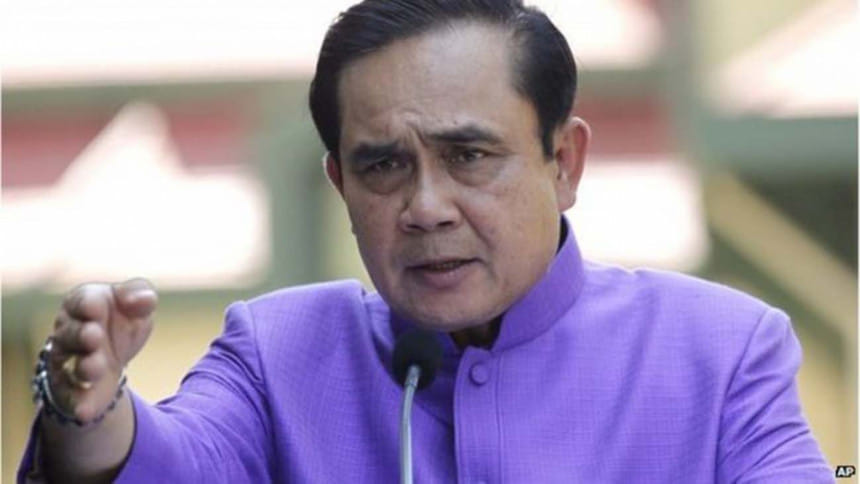Thailand PM 'to replace martial law' with new restrictions

Thailand Prime Minister Prayuth Chan-ocha says he has asked Thai King Bhumibol Adulyadej for permission to bring an end to martial law.
Martial law was put in place shortly before the army seized power last May, ousting the elected government following months of unrest.
The law banned public gatherings and heavily restricted the media.
Gen Prayuth said he would introduce new measures, which correspondents say could be even more sweeping.
Gen Prayuth, who led last year's coup and has since been appointed prime minister, said the government was "waiting for the king to royally approve the disuse of martial law".
"We have prepared Article 44 and will use it soon," he told reporters.
'Ultimate power'
Among other powers, article 44 of Thailand's new constitution allows the prime minister to issue executive orders to "disrupt or suppress" threats to national security or the monarchy.
Gen Prayuth said soldiers would be "able to apprehend people, if an incident occurs, without an arrest warrant".
The BBC's Jonathan Head in Bangkok says the new measures have the potential to be even more sweeping than martial law.
Rights group Human Rights Watch said implementing article 44 would mean "ultimate power without accountability".
"This is something very unique and worrying and it is not going to improve the rights situation and ongoing repression," said spokesman Sunai Phasuk.
The Thai junta - officially known as the National Council for Peace and Order - has insisted that martial law is necessary to maintain stability after years of turbulent politics.
It has promised to restore democracy and hold elections in late 2015, but has repeatedly cracked down on dissent, jailing critics and censoring the media.
International players have voiced concern that the military is consolidating power, while the tourism industry - vital to Thailand's economy - had complained that martial law was stifling the sector.

 For all latest news, follow The Daily Star's Google News channel.
For all latest news, follow The Daily Star's Google News channel. 



Comments